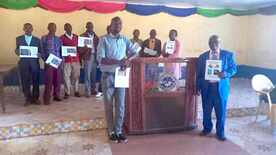 Roselyne Oyinga was walking in her farm when she felt a sharp pain in her leg. When she looked down, a green snake was biting her as it wrapped around her leg. When the snake moved off into the bushes, Roselyne began to experience headache, loss of saliva, heavy blood flow from the bite area, vomiting, and dizziness. When she made it home, her husband rushed her to the nearest clinic where they were informed there was no antivenom available to treat the bite. They drove some distance to Bungoma County Referral Hospital, where they were told the same story. Then at Bungoma LifeCare private hospital, they had to pay 15000 shillings ($100) in order to get treatment. They could not afford to pay. Having run out of medical options, Roselyne and her husband turned to a traditional healer, who prepared a concoction for her to drink and then began pressing on the wound to squeeze out the venom. After this, she had to walk on crutches for two weeks, but the horrible pain that she felt lasted for two years before finally healing. This story represents a number of things that can go wrong for a snakebite victim in East Africa, and in this case we are talking about a member of a Nazarene church in western Kenya. Many times the snake cannot be identified, and therefore doctors often have to treat the symptoms alone. There is very little antivenom available in the medical facilities, and the staff are often not trained for dealing with a snakebite emergency. Patients often have to travel over long distances on very rough roads to get to the hospitals, only to be turned away because the hospital or clinic does not have antivenom, or the family cannot afford to pay for treatment. So the family turns to a traditional healer who is much cheaper, but is unable to do anything to counteract the effects of the venom with their concoctions and other folk remedies. Every delay in treatment leads to a greater risk of death or loss of a limb. Snakebite is common and results in the deaths of nearly 1000 people in Kenya each year, and up to 4000 suffer a permanent disability. With the prospects for proper treatment so dim, the best way to address snakebite is through prevention strategies. Community groups and church congregations can be educated to understand snake behavior, identify dangerous snakes, recognize the symptoms of snakebite, administer proper first aid measures, and make changes that will keep houses and compounds safe from snakes. The Nazarene churches in two districts of Kenya recognize the seriousness of this problem and want to do something about it for their congregations and communities. In the Mount Kenya District, District Superintendent Martin Amuru is working with the Snake Community Action Network (SCAN) to provide training for churches where people are most at risk. SCAN is an organization started by Jonathan Twining, a retired professor from Eastern Nazarene College to combat the snakebite problem in East Africa. One church in Meru (Mwiteria) has already had one awareness training for their congregation. Another church where training is planned is in Tharaka-Nithi County which is close to where an 11-year-old girl recently died two hours after being bitten by a black mamba in her sleep. Meanwhile, in the Kenya West District, District Superintendent Julius Omondi invited the director of the Upendo Conservation Area training team to speak to pastors attending a recent evangelism meeting, and they were introduced to the idea of snake awareness and snakebite prevention training. There is now a plan in place to complete training in eight district churches, which started on November 13 with the Mungore-Khasoko Church of the Nazarene. In attendance were 19 women, 7 men, 25 children, and 5 church leaders. On December 2, the Upendo team will be completing training at the Namwacha and Ndararu churches in Bungoma. The biggest barriers to completing these trainings is the cost of transportation and the wear and tear of travel on vehicles when they must traverse very rough roads. In western Kenya, it is necessary to hire private cars, so when the church is quite distant from the epicenter of the training team, it can be quite expensive. The Mt Kenya District is huge, stretching from central Kenya to Ethiopia. The DS only has a small Toyota car to do extensive traveling between churches and it is not designed for taking the backroads. You or your church can support these training efforts by helping to pay for transportation costs and meals for the trainers, and also for copies of training materials. In addition, in the Mt Kenya District, Rev. Amuru is badly in need of a four-wheel drive vehicle that is more appropriate for the terrain he has to cover to get to his churches on a regular basis. Consider supporting this important ministry this holiday season! If you would like to support this training, please visit Snake Community Action Network (SCAN) at scan4snakes.wixsite.com For questions reach out to Jonathan Twining (Assistant Professor Emeritus). He can be reached at jonathanetwining@gmail.com or Jonathan.Twining@enc.edu, and also on Facebook at Eco-Missions in East Africa (https://www.facebook.com/virtualecomissions).
2 Comments
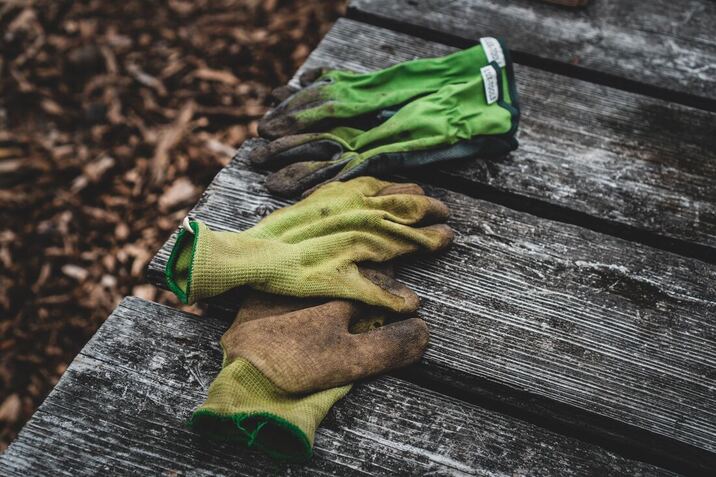 Photo by Jonathan Kemper on Unsplash I: Thinking He was the Gardener
On a sunny morning in late May my wife Olivia and I started our garden. With warm spring air and birdsong all around us we knelt together, digging through soft loam to plant cucumbers, jalapenos, several varieties of tomatoes, and green beans. Soon there would spring life from this immobile dirt! That this earth responds to us and is creating with us, in my mind, is an invitation into hope. We hope that our small seeds grow and produce. We hope that our plants remain healthy, grow strong, and ward off disease. We hope that the water and nutrients we provide encourage the yielding of a good crop. Working in and with the natural world is my passion. Ever since I was a small boy growing up in a house in the woods, nature has felt like home. So I pursued a degree in environmental biology in school and worked at low paying internships for a dream - to care for the natural world I had grown to love. Apart from some time working in other fields to pay the bills while questioning my life’s path, I have by the grace of God ended up back in a conservation role that I truly enjoy. The philosophy of conservation today is very focused on this: on restoration, on healing, and on mending the relationship between people and planet. This is in large part due to the state of the world’s climate and the rate of worldwide biodiversity loss. I love what I do because it makes me feel like I am doing something restorative, something to combat environmental crises. Seven years ago, while I was still at college, I attended the AuSable Institute of Environmental Studies in Mancelona, Michigan. There I had the privilege to learn from very passionate professors who shared their love for God and the natural world. One of my professors, Dr. Dave Warners of Calvin College, taught a class on Restoration Ecology that really opened my mind to the possibilities of creation care as a calling from God. I will never forget the moment during one lecture when Dr. Warners put a painting of the Resurrection up on the screen. It was an artistic rendering of when Mary recognizes Jesus at the tomb, and most peculiarly, Jesus was in dirty clothes and was holding a shovel. Dr. Warners went on to explain that this piece of artwork was based on the story of the resurrection as told in John’s gospel. If we take a quick look, we’ll see that Mary first mistakes Jesus to be a gardener: But Mary stood weeping outside the tomb. As she wept, she bent over to look[a] into the tomb, and she saw two angels in white sitting where the body of Jesus had been lying, one at the head and the other at the feet. They said to her, “Woman, why are you weeping?” She said to them, “They have taken away my Lord, and I do not know where they have laid him.” When she had said this, she turned around and saw Jesus standing there, but she did not know that it was Jesus. Jesus said to her, “Woman, why are you weeping? Whom are you looking for?” Supposing him to be the gardener, she said to him, “Sir, if you have carried him away, tell me where you have laid him, and I will take him away.” Jesus said to her, “Mary!” She turned and said to him in Hebrew,[c] “Rabbouni!” (which means Teacher). ~John 20:11-16 Until that day in Dr. Warners class, I had never given that passage a second thought. Perhaps this was actually no mistake but an indication of what Jesus was actually doing, freshly resurrected. Gardening. While researching for this article I searched for the painting that I saw during that class but was unable to find it. Instead I found dozens more just like it. Apparently this modest mention of Jesus as a gardener has sparked the imagination of artists at least as far back as the Baroque period. To my great amusement most of the paintings feature the Savior in a great, floppy, sun hat. If you want to read more and geek out on art, be my guest. Read the “She mistook him as the gardener” by Victoria Emily Jones of the Art and Theology blog, which I referenced for this article. This representation of Jesus, mistaken as a gardener, begs an obvious question: what was he doing? Why was the Creator of all things putzing around in flower beds, if that was indeed what he was doing? You would think that maybe he would run right up to Mary and the disciples, ecstatic, ready to party! The victory is won! While I don’t think we can know for certain if this was actually the case, I think it is an assumption with powerful meaning. II: The Restoration Project Let’s harken back to Genesis for a minute. When humanity fell in the garden, the consequences were threefold. Three relationships become ruptured: humanity to God, humanity to humanity, and humanity to creation. All of these facets of existence got screwed up and the consequences were not just spiritual but physical. Pain while bearing children. Hard toil to grow food from the ground. And then humanity was made to leave Eden, this most perfect of environments. The natural world is wrapped up in this fall with us. Then there is Jesus. God’s redemption plan. Come to restore our relationship with him. But what of the other relationships? Did God come to earth to only reconcile humanity to himself? If all of creation suffered the consequences of the first sin, wouldn’t God also be in the business of redeeming all of creation? I think he is. Then why didn’t he teach about environmental justice, you may ask? I think he did. When we look through the lens of Jesus’ teachings, he addresses loving God and our fellow human beings but not creation care. At least, he doesn’t address it in the way we would expect (much like many of the things he taught). Jesus didn’t describe the importance of caring for this tree or that beetle. He didn’t tell the disciples to share the hope of his abundant grace and also discuss climate change. Instead, we find a more subtle nod to the natural world by the Savior. An article by Chris Meehan for the Christian Reformed Church describes this “nod” very well. He interviewed Christian and environmental scientist Cal DeWitt of the University of Wisconsin-Madison on his thoughts of creation care and Jesus’ ministry. Interesting to note, said DeWitt, is that much of Christ’s ministry took place in natural places in Judea, Israel and elsewhere. Christ frequently used nature to help illustrate his messages. “He did much of his teaching on field trips,” said DeWitt. Christ spoke of the birds in the sky, calmed a stormy sea, was transfigured on the top of a mountain, and often renewed himself through prayer in the wilderness. He taught in gardens, along the shores of the Sea of Galilee, and walked through a field of grain on the Sabbath to show that every day is holy in God’s world. He also used a fig tree to illustrate a message about unfaithfulness. He even compared himself to a vine and said his followers were the branches. There is a wonderful pattern here. The Great Creator is using nature as both the subject and backdrop of his teachings. Now it makes a little more sense why Mary could mistake Jesus as a humble gardener. Perhaps he was pruning a grape vine, planting a tree, picking olives for a post-resurrection snack, or simply bending to admire a snail or an opening flower. Victoria Emily Jones, in the article “She mistook him for the gardener”, points out that John’s gospel as a whole echoes the theology of new creation all throughout it. For example, the prologue to [John’s] Gospel starts, “In the beginning . . . ,” an obvious echo of the prologue to Genesis. In 19:41 he mentions that Jesus was buried in a garden, and in chapter 20, that he was found walking around in it. He mentions twice that Jesus rose on “the first day” of the week, as if this were the first day of a new creation (cf. Genesis 1:3–5). Then Jones turns to the matter at hand, the Savior-disguised-as-gardener mystery. And then he has Mary mistake Jesus for the gardener. When taken in concert with Paul’s conception of Jesus as the Second Adam (Romans 5:12–21; 1 Corinthians 15:21–22, 45), these allusions suggest that Jesus is the gardener of the new Eden, doing what Adam could not do. His resurrection broke ground in this garden, marking the beginning of a massive restoration project. A “massive restoration project”. I don’t know about you, but that gives me chills. Jesus celebrated his victory by getting straight to the good work of the redemption of all things. III: Commissioned to Care Note that Jones writes that Jesus began a massive restoration project. So, who’s to finish it? Well, that would be us. The ones he has commissioned to love him and love neighbor. But are Christian’s really responsible for the state of the natural world? World Vision’s 2013 publication Why Are We Stewards of Creation, written by Jared Hyneman and Christopher Shore, is a great reference for that very question. In one of the subsections, entitled Bad Eschatology is No Excuse for Human Irresponsibility, the authors lay plain the fact that even if someone believes in an end to the world that involves “the burning of everything” the call of God in Genesis to take care of the world is not once revoked in all of scripture. I won’t wade any further into debates on eschatology, but World Vision has a good point. No matter someone’s position, God’s first command to us is not nullified by a destructive end to the world. As for me, I’d rather our work not be a total wash, but enough said on that for now. Perhaps the most important reason why God’s command holds relevance no matter our beliefs is because of the world’s poor. The poor, who hold a special place in God’s heart all throughout scripture, are the economic group most closely tied to the natural world. Again Hyneman and Shore write, Many of the poorest around the world are engaged in rain-fed agriculture, in subsistence farming, in artisanal fishing and in pastoralism. These livelihood pursuits are viable only when the earth’s ecosystems both work and work predictably. The World Vision writers then go on to quote the Eastern Orthodox All Ecumenical Patriarch Bartholomew, who once stated, The way we respond to the natural environment directly reflects the way we treat human beings. The willingness to exploit the environment is revealed in the willingness to permit avoidable human suffering. So the survival of the natural environment is also the survival of ourselves. When will we understand that a crime against nature is a crime against ourselves and sin against God? And the Patriarch’s words echo Martin Luther King Jr.’s when he said simply, Injustice anywhere is a threat to justice everywhere. These are powerful and convicting words, especially for the affluent among us. Although it may be far from our minds, we are all dependent on the natural world, its cycles, and its services. This is not something that we can escape and wish away with concrete jungles and perfect lawns. Our relationship with the natural world is unavoidable. If we are part of the created order, then caring for it blesses humanity as a whole, especially those of us who cling to it for sustenance and livelihood. IV: Little Acts of Hope When I began writing and researching for this article I had a hard time crafting what I wanted to say. I ended up doing quite a bit of soul searching. At times during my writing I questioned whether caring for creation was even worth it. As with so many injustices in the world, the sheer amount of brokenness can be immobilizing. I was also grieving fact that there are a lot of things that I could be doing to live a more ecologically friendly life, or to support the causes of environmentalism, the reasons for which are often circumstantial but sometimes not. It’s hard to change habits, or even to begin to change them. Even as a person who loves caring for the natural world, I endure a little (maybe a lot) of hypocrisy now and then. I want you to know that I get it. People don’t often respond well when they are told they need to be doing more. We could all be doing more. What I want to propose to you instead is this idea that I got from my wife (who is very smart and the pastor of our local church). While I was explaining my dilemma to her, she responded by saying that we do what we can do. Little acts of hope. Then we entrust the rest to God in his infinite wisdom and grace. We are, after all, only one person. She said something like that and it was simple yet profound. We are just little vessels of hope, doing the small things that we can, and leaving the rest to God. With creation care, a little act of hope could be anything. Maybe it is cutting back your shower time to conserve water. Maybe it is volunteering with local parks or conservation districts. Maybe it is taking a walk in the woods to reconnect with nature. Maybe it is planning to do bigger, more sustainable life changes down the road (there’s nothing wrong with not making a change all at once). Maybe it is answering a call to be a conservationist, a marine biologist, a nature photographer, a climate scientist, or a park director. Or maybe the calling, the nudge, is simply to start (or continue) to garden and bring in fresh, homegrown produce from your little space in the ground. I feel a connection with God when Olivia and I do this. It warms my heart to see the work of our hands and the fruit of the ground. In our own, small, hopeful way we are joining Jesus on his knees in that Easter garden. Tending creation. Doing the work of hopeful gardeners. - Evan Stern Evan is a deep lover of the natural world, especially of birds, little streams, and quiet woods. He is a graduate of Houghton University ('18), and is currently helping farmers in Ohio to adopt sustainable agricultural practices on their farmland. In his spare time you might find him birding, biking, drawing maps, or spending quality time with friends and family. He lives near Columbus, Ohio, with his awesome wife, who is the pastor of their church. References (2021). New Revised Standard Version, Updated Edition (Bible). National Council of Churches of Christ in the United States of America. Hyneman, J., & Shore, C. (2013, May 1). Why Are We Stewards of Creation? World Vision’s Biblical Understanding of How We Relate to Creation. World Vision: Natural Environment and Climate Issues. Jones, V. E. (2016, April 5). She mistook him for the gardener. Art & Theology. Retrieved November 21, 2023, fromhttps://artandtheology.org/2016/04/05/she-mistook-him-for-the-gardener/ King, M. L., Jr. (2018). Letter from Birmingham Jail. Penguin Classics. Meehan, C. (2011, October 12). Creation Care Follows the Steps of Jesus. Christian Reformed Church. Retrieved November 21, 2023, from https://www.crcna.org/news-and-events/news/creation-care-follows-steps-jesus  Photo by Matthew TenBruggencate on Unsplash Photo by Matthew TenBruggencate on Unsplash Everyone in the conference center at COP27 (The 2022 United Nations Climate Change Conference) was looking for something. Some were looking for new partners or to expand their networks, others were looking for investment opportunities or new policy commitments. But I was looking for something less concrete: hope. This search was shared by many in my group as well. I had travelled to Sharm El-Sheik, Egypt with the Christian Climate Observers Program (CCOP), a non-denominational group committed to teaching Christians to be better climate advocates. This organization brought together Christians of all ages from all around the world, and among many of the young people in the group shared a common struggle with climate anxiety. It was this fear of what the future would hold if no action was taken against climate change that motivated many of us, myself included, to come to this conference. For others in the group, anxiety had already passed into grief. Family members lost to flooding, communities lost to wildfires, or livelihoods lost to financial burden were the driving factors behind their activism. We all sought hope of some kind, proof that God was working in midst of the chaos. And so, our anxious and mourning souls went into the massive conference center, longing for a reason to hold onto hope. My first activity at COP27 was to listen to the opening speeches. I sat giddy with excitement in a large overflow room filled with others who also weren’t granted in-person access to the main event. We watched on big screens as the most prominent world leaders gave their opening remarks. Given the overwhelmingly large scope of climate change, I had gone into the conference expecting to find hope in these largest and most powerful bodies, so I listened intently to what they had to say. ‘If the world’s governments couldn’t solve climate change, who could?’ I thought to myself. But as I listened, my excitement and hope plummeted. I realized that I had developed a strange sort of climate Stockholm Syndrome. Stockholm Syndrome is a condition that some people fall into during hostage scenarios. In a distorted understanding of their situation, the captives start to develop a bond and sympathize with their captors. And I admittedly fell into this. The climate is being held captive by private economic interests and political systems that value profit and growth more than the well-being of those held dear by God. And yet, I had placed my hope in these very systems. I thought they were well-intentioned, and that if we had the right people in power, saying the right things, that meaningful change would come. It was with this twisted hope that I sat in that room. I listened as world leader after world leader rambled on about “unity,” “urgency,” and “taking action,” and became increasingly disillusioned. My skewed read on where hope would be found was made obvious to me as I realized I was being told how important reducing carbon emissions was by oil barons. I was listening to military dictators tell me how much they cared about justice. Even those from my own country, the United States, bragged about our new partnerships with billionaires and private corporations (the leading contributors to carbon emissions) to fund new environmental programs. It was these systems and leaders that I was sympathetic to, that I looked to for salvation. Yet they were the very ones holding our planet and future for ransom. I spent those first few days rather discouraged. I had realized misplaced hope, and tried to dismantle my climate Stockholm Syndrome, but I didn’t know where else to turn for hope. I asked myself again, ‘If the world’s governments couldn’t solve climate change, who could?’ I did eventually find hope at COP27, just not where I had thought I would. But in hindsight, I should have expected it. Our hope is in God, that much should be obvious to Christians, but where God would be found was what I needed to answer. God has never been revealed in the most powerful among us, in the wealthiest or most privileged. God did not appear to Elijah in 1 Kings 19 in the strong wind, or the fiery earthquake, but rather in the gentle whisper. God did not come to Earth in the form of a Caesar or military leader, but rather as a carpenter from Nazareth. So, I should’ve expected that God would not be revealed to me in Egyptian President Sisi’s speech, or in Joe Biden’s. Every morning, the group I was with started the day with breakfast and a devotional. We shared of the high points and low points from the previous day and discussed scripture passages to set the tone for the new day. We would rejoice about successes and commiserate about frustrations together. My hope was found in these meetings. With every lecture or panel discussion that I attended, I sat in the crowd, shoulder to shoulder with people from all over the globe, eagerly listening to and learning from the speakers. Often, I would have conversations with those around me before or after. My hope was found in these interactions. Learning that there were thousands of others who cared, who cared for the right reasons, who cared enough to travel to the middle of the Egyptian desert, who cared enough to listen and learn in any way possible, gave me the hope I was looking for. It is clear that we need to overcome our reliance and trust in those systems that are holding our planet and future hostage. To make it through the changing of our climate, we need serious change. But what COP27 taught me is that this change will never come from the top down. Our hope will not be found in the economic powers and world leaders that preside. Our hope is where God is, with the marginalized, disenfranchised, with the mourning, with the anxious, with the masses who are calling out for a better and more just world. We are each other’s hope, and only together will we be able to accomplish the change we need. - Isaac Mann is currently a senior pursuing a BS in Environmental Biology at Houghton University, but he grew up in the community at Eastern Nazarene College. A baseball player and avid backpacker, he has loved the outdoors since he was a child and believes this passion is a calling into the field of ecology. Post-graduation, he hopes to continue his studies in graduate school and go on to work restoring and conserving Creation. The holidays are right around the corner which means so are the advertisements, the sales, and the lines. If you are looking for ways to get through this season while being as sustainable as possible look no further!
Hands down the best way to be eco conscious while shopping this season is to avoid shopping in the first place. This might be a tough change to make, we understand! Some alternatives to shopping can be creating experiences to share with those you care about, making gifts out of items you have on hand, or in the case that you need to buy something, buy second hand. The holiday season is usually one that brings family and friends together. This comes with a whole lot of expectation. These expectations can make it hard to transition to a more eco-friendly holiday season. That is the wonderful thing about choosing to participate in creation care, there is no right way and any step toward ecofriendliness is a good one. There are thousands of products out there that are marketed as “eco,” “earth friendly,” “green,” or “sustainable”. We hope to give you some tools to use your money to protect the environment as well as those who make and use these products. Here is the long and short of it… 1 Buy less 2 Buy local 3 Read the label 4 Pick less packaging 5 Choose sustainable standards Let's break it down... Buy less. Often around the holidays we see consumerism in full swing. Consumerism isn't just buying things but buying things we don't need over and over again. This habit drives manufacturing which fuels systems that degrade the environment by polluting the air and water which ultimately takes more resources than it gives back. Buy local. When we ship things from online stores or oher logistics companies we are using a much higher level of energy than if we got the same product from someone local. Shipping long distances requires more fossil fuels, water, energy, and human power which all have bad impacts on the environment. Buying locally also can help you decide if the farmer, creator, or manufacturer is making their products with eco-friendly principles and pays their workers well. Read the label. As eco conscious consumers, we have to do a little more work when purchasing things. Some products use words that are greenwashing terms. Greenwashing is when companies promote something as eco-friendly or green when this is not true. Greenwashing is a marketing ploy for some companies to sell more to uneducated consumers. If we take time to read the labels and research companies, we can avoid products with words like “natural,” “organic,” or “eco-friendly” if they do not have any proof or third-party verification. Simply reading can help us avoid hazardous products and choose some that are good for us and the planet. Pick less packaging. One easy way to make an impact while shopping is to choose products that have as little packaging as possible. Buying in bulk can help or choosing liquid products that come in concentrates to reduce water. While it may take more time, research can help us choose products that come in containers that can be recycled easier like glass or metal. Using your own bags and wrapping gifts in reusable bags or even cloth are easy ways to reduce packaging and waste this holiday. Choose sustainable standards. Many companies provide documentation that their products are made according to sustainable standards. For example, the organic standard for cotton makes sure that products do not use pesticides and other toxic chemicals to produce products. Check to see if a company has a standard to govern the whole life cycle of the product, from raw material to finished product. Third parties can help us with this task. Groups like Energy Star, Forest Stewardship Council, and B Corps are great things to look for. We know this is a daunting task with the hustle and bustle of the holidays. Here is a, by no means exhaustive, list of organizations that can help you make earth friendly choices. Better World Shopper - a public research project dedicated to making social and environmental data available to consumers who wish to utilize their dollars as votes in order to help build a better world. Earthhero.com - an organization who vets and promotes products that are good for people and the planet. DoneGood - Thousands of products that are ethical, eco-friendly, fair trade, and give back to great causes—all in one place. End Slavery Now - a organization that teaches the public about slavery, how to find organizations to end slavery, and promote action in our communities. Grove Collaborative - Grove creates and curates 150+ sustainable, high-performing brands that meet our four-point standard: uncompromisingly healthy, beautifully effective, ethically produced, and cruelty-free. So you never have to choose between a clean home and a clean planet. Pact - Organic and sustainably sourced clothing for the family. Public Goods - a company that aims to serve with a massive range of ethically sourced personal care, household, grocery, and pet products. Plan Toys - a sustainable company creating wooden toys that are safe for little ones while providing them with a stimulating, sensory experience. - Makayla Johnson, Environmental Sustainability and Special Projects Manager with Nazarenes for Creation Care Always take time to contemplate the seasons. However long, however brief. Take time to contemplate the seasons. Pause the busy. Take just a moment to look around. Go and sit in the midst of God’s creative hand. Always take time to contemplate the seasons. 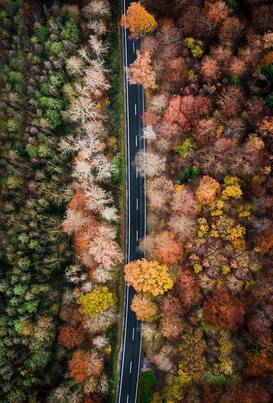 Photo by Fabio Jock on Unsplash Photo by Fabio Jock on Unsplash As I’m writing this the season has changed. We’ve had a hot and dry summer here in the hills of Tennessee, but after a long wait, no more! Within a matter of weeks everything has changed. All of the greens of the oaks, walnuts, dogwoods, maples, redbuds, and more are fading or gone. Replaced by shades from the palette of fall. The yellows, the oranges, the reds. All striking and beautiful. Enough to grab anyone’s attention if even for a moment. Then there is the movement of a fall breeze that makes the range of colors sway and dance, bringing with it cooler weather. Change is coming! It’s happening now! What a beautiful change it is and orchestrated on such a massive scale! When I step out my door there is so much happening outside! Not a word spoken, and yet so much is said. On some days there are too many interactions to count. The ongoing chatter between flora and fauna can take on the dull roar of a large convention, and yet no emails were needed. No memos had to be sent. No schedules needed to be plotted and planned. No agendas needed to be turned to strategy, and no policies had to be written to continue the work of God’s creative hand. What a gift we have when we take the time to see! When we slow down to observe. Kind of like a spectator. . . just sit and enjoy. Actually, we spectate nature a lot. For some, the main way we engage the natural world is through entertainment. Nature is the place we go to escape or recharge the batteries. But, I’ve come to realize that our role is not to be in “the stands,” and this is anything but a spectator sport! The truth is, we greatly affect the environment we occupy. So, while we might think we are just observers from the stands, some of us choose to take to the field and take action! The truth of the matter is we are all involved. We are all contributing. We are all playing a part. The question we all need to ask ourselves is what position am I playing? Always take time to contemplate the seasons. What role am I playing? Where do I fit in the world around me? Honestly, once we start asking these questions and we start looking at our world through the lens of creation care what we find can be quite alarming. The problems we see can run very deep, the realizations quite scary, and the burdens we start to carry can become quite heavy. It is important to take heart, bring your courage, and most importantly don’t tread alone! Jesus sent the disciples out in twos. The God who calls is redeeming, reconciling, and healing. He shapes and equips those that accept the call. We are redeemed. We are called to reconciling work, and we can help heal too. Slow down. Take a moment. Always take time to contemplate the seasons. I’m recalling one of the first books that grabbed my attention, Silent Spring. Rachel Carson was a marine biologist working for the U.S. Fish and Wildlife Service. She was passionate about what she did. She had a lot going against her though. She worked in a male dominated field through a time that prized nuclear science. Despite this, her passion and attention to the “wonders and realities of the universe about us” (Intro XIX), brought about major change and launched the beginning of the environmental movement. She wrote: “We need a more high-minded orientation and a deeper insight, which I miss in many researchers. Life is a miracle beyond our comprehension, and we should reverence it even where we have to struggle against it. . . . The resort to weapons such as insecticides to control it is proof of insufficient knowledge and of an incapacity so to guide the processes of nature that brute force becomes unnecessary. Humbleness is in order.”[1] This book was written over 60 years ago. Her findings and concerns hit everything directly on the nose, but yet much of what she spoke for is under major threat today. Life truly is “a miracle beyond our comprehension.” We forget that most of our modern conveniences and current lifestyles come from this miracle. We have learned and continue to learn so much from the natural world. Nature is the original, living artwork with God’s name scribbled in the corner. We take instead of revere. We extract instead of appreciate, protect, and participate in this miraculous thing. When we finally pause to take a pulse, we may find that many of our relationships with the environment are parasitic rather than synergistic. (Chainsaws have been echoing through the woods for the past several days as I write this.) Much of the original stories, images, and even some of the parables in Scripture are agricultural. The natural world is such an integral part of our story. It seems that the life of the Church should have a very natural and dirt-related component to it. How many of our churches have this lens? We use images of a tree, the mountains, and the sea. How many of us know the details of these things in our world? Sometimes there appears to be a great divide between the kingdom work of the Creator and the work of creation. Our work as the Church of proclaiming Christ and saving lives does not always seek to also save the land where we live. But what if our salvation is both intertwined with spirit and earth? We are called to both parts of a holistic gospel. What if, waste and destruction of the natural order was as noticeable to us as a cell phone ringing during corporate prayer? Everyone notices it. Likewise, when God’s good creation is abused, it should be an alarm going off for the people of God! In that moment we are doing one of the most important things in our lives, worshipping as a community and connecting with God. That time and space is important, holy, and sacred. The same is true when we step outside of our congregations on Sunday into the world. We move from one sanctuary into another. The sanctuary of the natural world. God created that too. Remove what doesn’t belong. Cease what doesn’t need to continue. Take the time to look at your world around you. If we would just look and listen, there is a call to worship. There is a call to wholly living that whispers to all of us. It is a call out of destructive habits and into a daily lifestyle that sustains and gives abundantly. Take the time to look at your seasons. What has happened before? What is going on now? What is coming next? The work of this season lays the foundation for the next season. We need to reflect on the past, be aware of the now, and work towards the approaching season to come. It is fall now. That means winter will soon be here. Spring will be coming again. . . Life, death, and new life! I pray the veil is removed for each of us in intimate ways, and for all of us systemically. Always take time to contemplate the seasons. However long, however brief. Take time to contemplate the seasons. Pause the busy. Take just a moment to look around. Go and sit in the midst of God’s creative hand. Always take time to contemplate the seasons. - JT Blue is a happy father of 3 and husband, having 10+ years with a Pastoral degree from Trevecca Nazarene University. He currently works part-time while pursuing ordination and giving all his spare time to the Church, community, and growing hobby farm at home. [1] Carson, Rachel. “Silent Spring” p. 275 While stuck inside during the ice storm, I watched a video on this new trend in dealing with a person's body. Turning them into compost. I couldn't peel my eyes away as they explained the procedure. They would have a ceremony with the family where the body would be put in a cotton shroud. The corpse is covered with wood chips, alfalfa, and straw and put into a vessel for a month where the body breaks down into soil. Either the soil can be donated or be taken back by the family. It isn't legal everywhere. Usually the crunchy, liberal types are the ones to whom it appeals. Others are often disturbed by the thought. This often fits into much of the current post-religious spirituality, into the present movement of rejecting the afterlife and resurrection and just wanting to return to Mother Earth. For many this is wrapped up in believing decay and rot is all there is after death and finding a way to try and make it sacred. I don't know if YouTube knows me (I know the AI powering my activity on the internet knows me more than I would like), but such a thought-provoking video couldn't have come at a better time than being stuck indoors in the dead of winter while mentally preparing myself for Ash Wednesday. Every Ash Wednesday while beginning to reflect on mortality, I remember one of my earliest memories of encountering the gruesomeness of death. I was about 6, if I remember correctly. It was back in the 90s when moms sometimes went inside a store and left the kids in the car with cracked windows. Mom went into the Bible House when it was on Main in Searcy. I waited in the car and found myself turned around looking out the back window at the cars driving by. I saw a motorcycle speeding past a truck. He didn't realize the truck was turning toward him, and the truck didn't realize he was speeding past him. The truck hit the bike, and my young 6-year-old eyes watched the man fly off like a rag doll and land on his neck. He was contorted a bit, and I thought I was going to throw up. He didn't move, and the paramedics came and immediately put him in a body bag. Before they got there, mom came out and asked me if I saw what happened. I actually lied. Not because I was in the habit of lying, but I didn't know how to process what just happened, and I felt afraid. I felt like I had seen something I wasn't supposed to see. I probably should have gone to therapy or something, but I said nothing and never talked about it, and again, this was the 90s. I had an idea of death since before I can remember. Being a pastor's kid meant you went to lots of funerals. Waxy looking faces on fluffy pillows surrounded by flowers and people crying. Death was still rather formal and pleasant. It also usually entailed good food at some point during the day. I heard about people going to heaven and being with Jesus. You missed people, but you were taught to feel happy for them. I had a new idea of death afterwards. I saw it happen in an instant. I thought before of people flying away and moving to a new place. After the accident, I thought of people breaking like a dropped toy or plate. Death felt much closer and people much frailer. Dust we are and to dust we will return. I personally never really cared for the waxy faces pumped full of chemicals, trying to preserve and put off decomposition for as long as possible. I don't have anything against it. I know people are comforted by this and the process of a funeral, and I know people in the funeral service who take it as a sacred task. The composting idea doesn’t bother me, though. It is what happens to us anyway in the long run. For a good amount of human history and culture, people were wrapped in a cloth and put into the ground where the same process takes place. I think it makes us uneasy to see that dirt, though. We don't want to see it or think about it. It reminds us of what our bodies came from and are constantly becoming. If our bodies are always renewing themselves, then all the cells we had 7-10 years ago have already experienced death, even many sloughed off into dust. These bodies won’t just become dust eventually. They’re constantly becoming dust. My idea of death, my relationship with it, has thankfully developed since I was a traumatized 6-year-old. A certain comfort has developed in me with death. It came first, believe it or not, from having that experience, and then second from the process afterwards of finding a deeper understanding and faith in resurrection. This is where Christians struggle. It is much easier to believe in resurrection when we look at waxy faces on fluffy pillows and imagine them in glowing white robes. It is easy to imagine that body coming out and flying away when trumpets sound. It is much harder to look at a more realistic vision of the full process of death and get to resurrection. Could we stand at a body decomposed into a pile of dirt you could use to fertilize your tomatoes and say with full faith we believe we'll see them again one day? Not just encounter their soul floating around on some incorporeal field. Disembodied souls was never the gospel. Could we look at that pile of soil and proclaim we believe in the resurrection of the body? Could we really have faith in the One who created it all and intends resurrection, believing God isn't threatened by decomposition? Such a credence takes a faith in God, an understanding of reality, even an understanding of the gospel, which goes a bit deeper than many are willing to tread. Souls floating around and an earth that isn't renewed but eventually thrown away is much easier to accept. We've skipped that pile of dirt, and we've wanted to just run into a warped vision of Easter, but you can't get to real resurrection without going through death. To be honest, it still is a challenge for me. I believe it is a perfectly human struggle to grapple with the reality of resurrection, if one is really willing to wrestle with it. Perhaps standing at a pile of compost we would feel like Ezekiel in the valley. "Mortal, can these bones live?" Oh Lord, You alone know. The ground is frozen outside, but I still hope for spring. Ashes will be on my head Wednesday, a visible reminder of what my body is constantly turning into and will be completely one day, but I still hope for Easter. I still hope for resurrection. - Allison Beaty was raised in Searcy, Arkansas where she felt called to ministry as a teenager. She attended SNU where she did a multidisciplinary in philosophy and theology. In 2013, she moved to Rome, Italy where she studied at the Pontifical Gregorian University completing a BST and then a MTh specializing in Patristics. She is currently the senior pastor at McCrory church of the Nazarene in McCrory, AR. I’ve been spending a good deal of this summer underneath the blueberry bushes. After adding a bird net this season our bushes have been prolific with berries. We’ve received so many blueberries our kids have even, unbelievably, almost eaten their quota! I usually find myself out in the backyard picking in the heat of the afternoon because that’s when I have the time. In the rhythm of picking on these hot Tennessee afternoons, I’m beginning to see this as a spiritual practice. A place where I can just come and receive what nature is ready to give. Although I quickly have realized how much work is involved. We only have two bushes here in our backyard, but by myself, I can easily spend almost 40 minutes out there grabbing one berry at a time. The thing about picking blueberries is that you have to use your fingers. It’s fairly precise work. That is if you don’t want to pick the other pre-mature berries with the good ones or make sure you’re not knocking a bunch on the ground in the process. It forces to you move with steadiness and intentionality. You have to move the berry from the tips of your fingers to storage in the palm of your hand. But you can only hold so many! In fact, the lesson one quickly learns, if you try to pick too many berries in one swoop, you just begin dropping as many as you’re picking. Lessons for life. The practice forces you to spend a patient moment in nature. A moment to feel the heat on your neck. A moment to taste a sweet juicy blueberry on your tongue. A moment where you are literally on your knees to fill up your cup. Crawled under the berry bushes this summer I’ve spent time listening. Thinking. Snacking. Praying. Songwriting. Podcast streaming. And especially thinking about some group of workers somewhere else in the world that does this for a living. Wondering… Do they get paid well? Is this work generally fair-trade? Do they get to keep a percentage of their pick? I bet they’re a lot faster at this than me. What’s the blueberry industry like? I think about what it would be like to live off the land. To be in such a special relationship with the land that it feeds you all year round from your yard. (Obviously, much work is required here!) But there is certainly something ancient about the relationship between a human’s hand and the ground… and the loving reciprocity and fruit that can be produced from that care. Earlier this summer we discovered we also have a mulberry tree in our yard. After clearing a lot of brush last winter, this tree apparently found room enough to fruit! It was there the whole time, all these years. Along with the mulberries, for the first time this summer, we’ve eaten wild raspberries growing at the bottom of our yard. Bright and delicious! And after transplanting a few canes of tamed raspberries and blackberries back in the fall, we enjoyed quite a hefty first-year harvest – which I’m still quite surprised by! But the berry adventure doesn’t just stay in the backyard! The past few seasons I’ve been allowing this vine to creep up the old steel front porch supports on my house. Recently, I found myself looking out my window only to see what looked like a small cluster of grapes forming. I couldn’t believe it! Could these really be grapes appearing on my front porch now? The jury is still out on this one as the birds seemed to have eaten everything that was growing there! Perhaps if there is something I’m learning in this season of “berrydise” it's that creation today mostly seems to exist as a brief glimpse of what it could be. If the jungles, marshes, and rainforests teach us anything, it's how this world has been created with the capacity to fruit, produce, and multiply! If stewarded well, the earth is more prolific than we imagine. How might we be a people who foster this growth? Who is more interested in serving and keeping the land rather than our greedy version of subduing it? Could we become more interested in planting than mowing? Could we measure success in the number of bees and berries rather than “yard of the month” aesthetics? What would it look like for us to be faithful in the soil first, knowing that without that gift all other gifts cease to exist? How might we find ourselves loving the whole world, because that’s what we're created to do? The Lord God took the human and put the human in the garden of Eden to serve it and keep it. |
N4CC ScriptsScripts is a collaborative effort from a wonderful "cloud of witnesses" writing on issues of creation care. All contributors are Christians seeking to embody earth care in their own context. Archives
December 2023
|
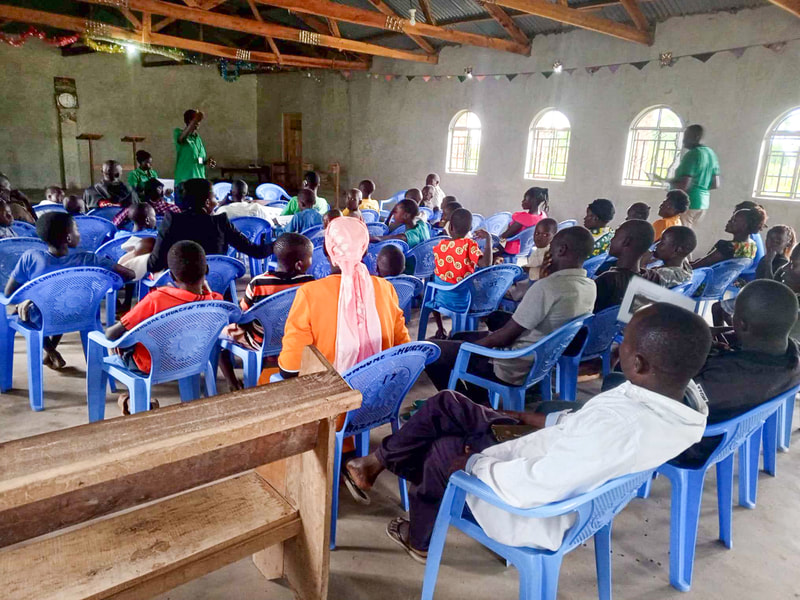
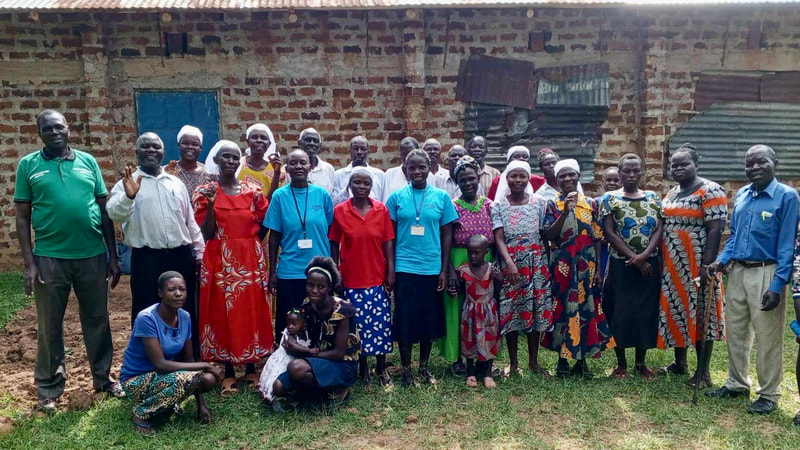
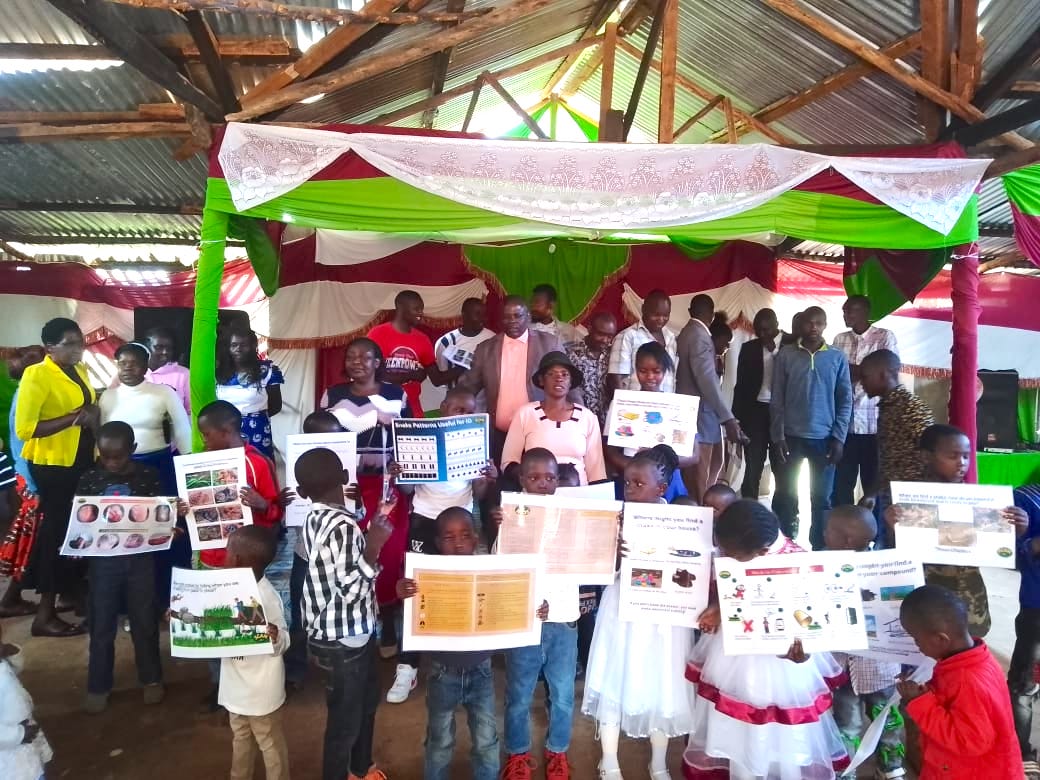

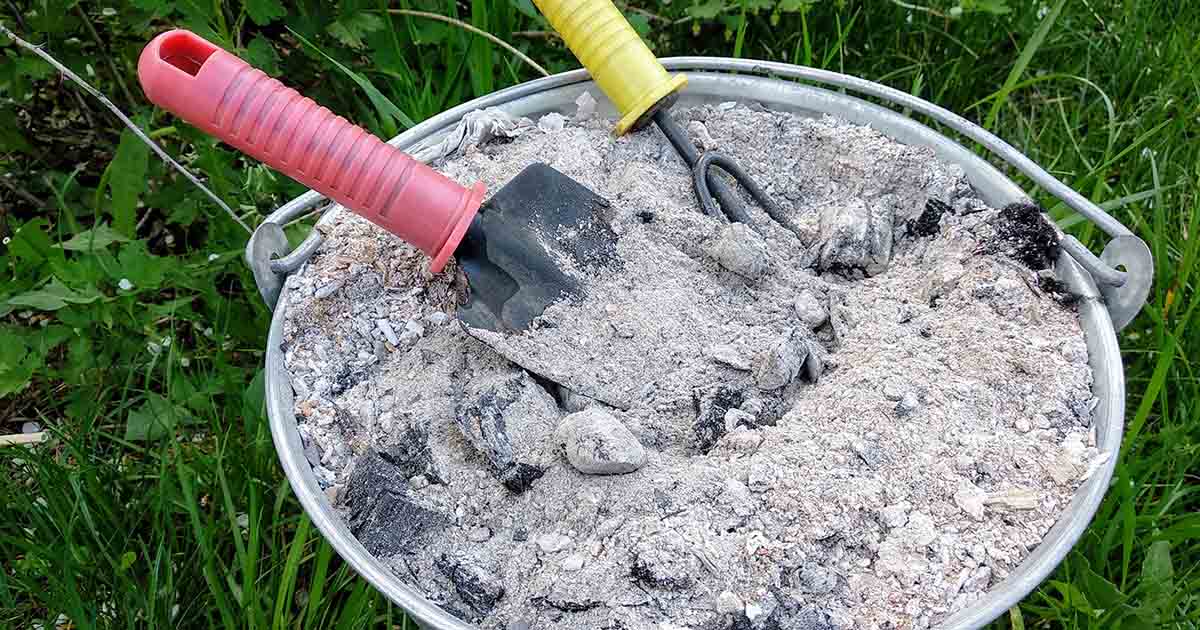
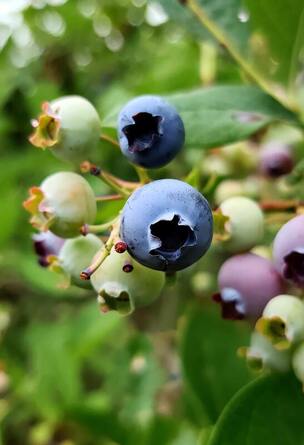
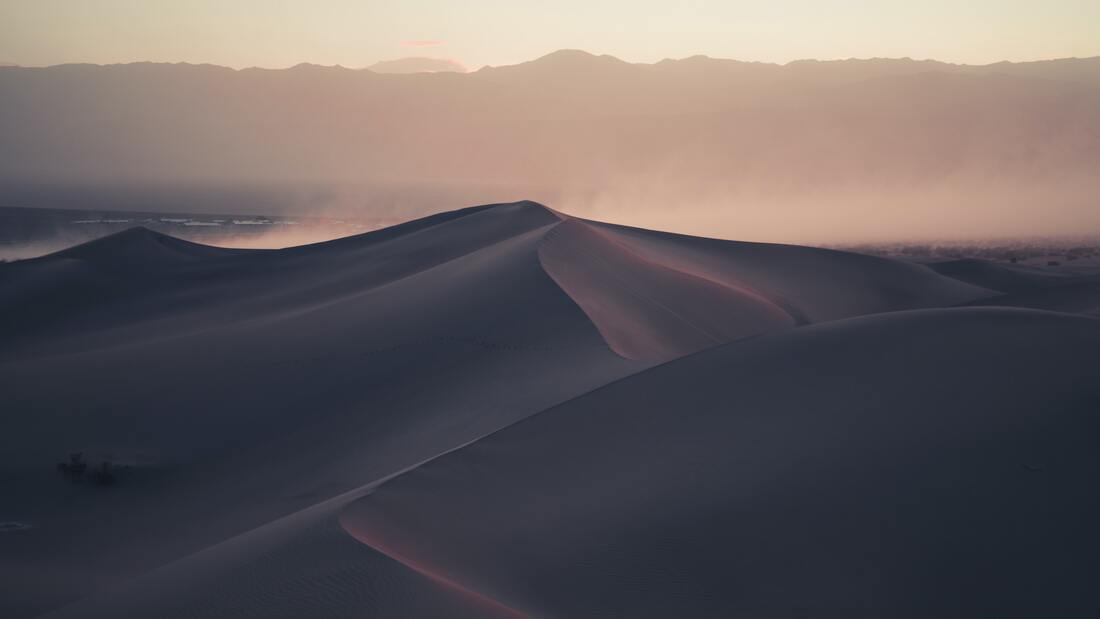
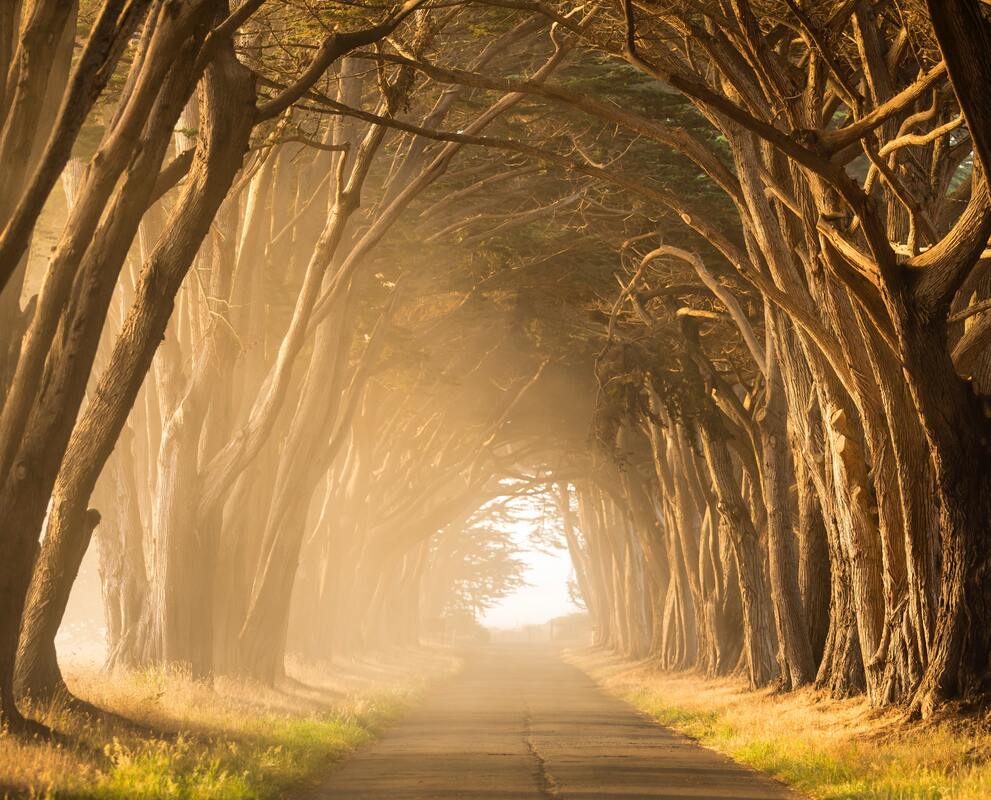
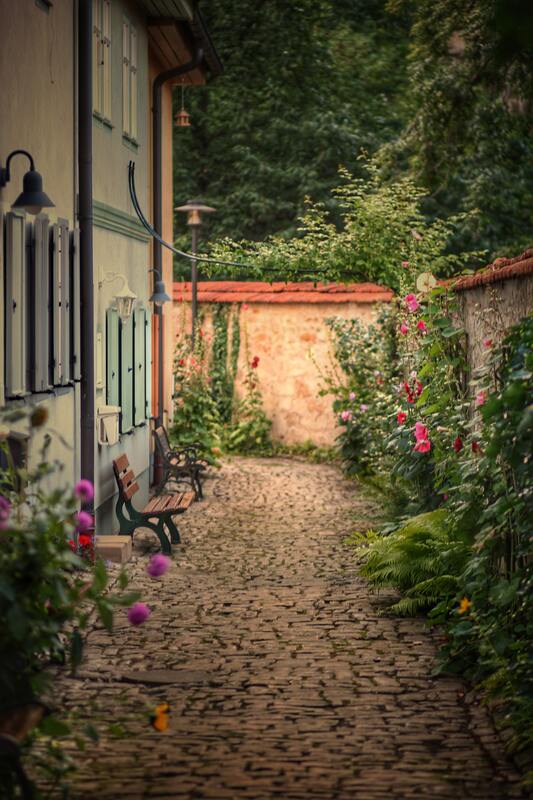
 RSS Feed
RSS Feed
